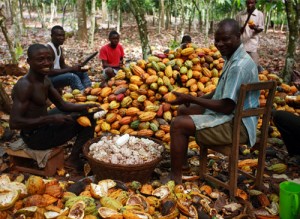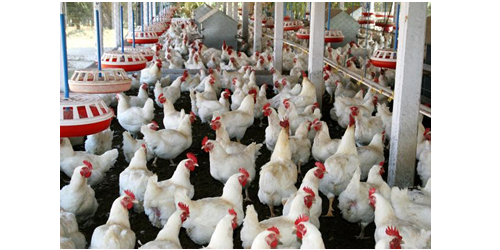Markets set for Ghana cocoa scramble

The cocoa market is bracing for a period of volatility as the deadline for shipments of Ghanaian beans to Europe falls early next week.
Ghana, the second largest cocoa producer has faced an unexpected drop in output this year. However, the country has pledged its crops ahead of the harvest in the form of “forward selling” to traders and cocoa merchants, many of whom have been waiting for their shipments since the start of the year.
If the shipments are not made, there is likely to be a scramble for Ghanaian cocoa on the physical markets, and adjustments of hedging positions on the futures markets, say traders and brokers.
“The flow of activity as people look to cover their positions is likely to increase,” says one commodities broker.
The International Cocoa Organization revised down its output forecasts for Ghana cocoa from 810,000 tonnes to 696,000 tonnes over the past few weeks. This represents a 22 per cent fall from the previous year’s harvest of 897,000 tonnes.
On the physical cocoa market, the prices for Ghanaian beans have risen sharply and are now priced around £200 a tonne above futures prices — currently at around £2,039 a tonne on Liffe. However, the uncertainty has led to offers and bids for cocoa from the country drying up, according to brokers.
If the shipments from Ghana are not made, the cost to the cocoa trading industry could be as large as $40m, say traders.
It is unclear which part of the supply chain will bear the extra costs incurred, but rather than the costs being passed on to the Ghanaian cocoa authority, the ultimate seller, “the industry are going to bear it,” said one European cocoa trader.
If that is the case, it will be a blow for cocoa trading companies whose margins for buying and selling cocoa are wafer thin, said analysts.
“This is hugely significant for the [cocoa trading] industry,” said Edward George, head of research at Ecobank.
According to the ICCO, the sharp fall in Ghana’s cocoa production could have been caused by seasonal dryness caused by strong Harmattan winds, inadequate rainfall, late application of fertiliser, and the curtailment of the government’s mass spraying programme.
The international cocoa body has also pointed to possible of structural factors, such as competition with the mining industry for land, water and labour.
NGOs have said that the price of chocolate remained too low and that cocoa farmers received only a fraction of the profits. A recent report warned that endemic poverty of cocoa farmers provided little incentive for the younger generation to farm the commodity.
Source: ft.com




